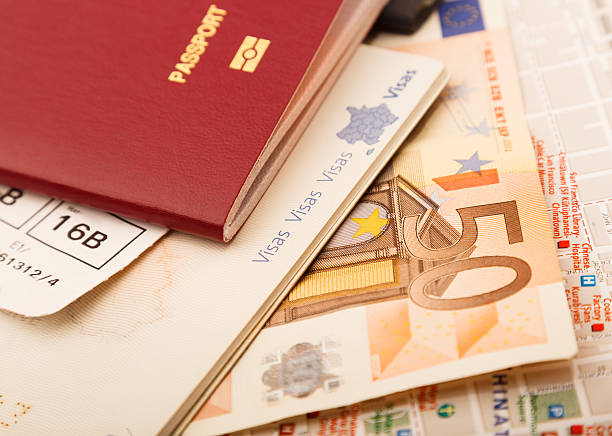When traveling abroad, understanding and managing different currencies is one of the most crucial aspects of ensuring a smooth trip. Whether you’re planning to explore Europe, backpack through Southeast Asia, or discover the wonders of South America, handling money in foreign currencies can seem daunting at first. But with a little preparation and knowledge, you can confidently navigate the world of international money exchange.
Here are some practical tips to help you manage foreign currencies, understand exchange rates, and use your money wisely while traveling.
1. Understand Exchange Rates Before You Go
Before you even step onto the plane, it’s important to get familiar with the current exchange rate of your destination. Exchange rates fluctuate daily, so knowing how much your home currency is worth in relation to your destination’s currency can help you make better decisions when it comes to withdrawing money or making purchases.
Tips:
- Use Currency Converter Apps: Download a currency conversion app like XE or Revolut, which provides real-time exchange rate updates and helps you understand how much you’re spending.
- Set a Budget in Local Currency: If you’ve done your research, try setting a budget in the local currency to avoid overspending or underestimating the cost of things.
- Consider Exchange Rate Margins: Keep in mind that exchange rates you get from currency exchange counters or ATMs may differ slightly from the market rate due to transaction fees. Some banks offer better rates, while tourist-heavy areas may offer less favorable ones.
2. Use a Travel-Friendly Credit or Debit Card
One of the most convenient ways to handle foreign currencies is by using a credit or debit card designed for travel. These cards usually offer competitive exchange rates and are widely accepted across the globe. However, there are some things to keep in mind when using plastic abroad.
Tips:
- Avoid Foreign Transaction Fees: Many credit and debit cards charge foreign transaction fees (typically around 2-3%) for purchases made in foreign currencies. Look for cards that waive these fees, such as the Chase Sapphire Preferred, Capital One Venture Rewards, or Revolut card.
- Notify Your Bank or Card Issuer: To avoid your card being flagged for suspicious activity, inform your bank or card issuer about your travel plans before you leave. This will ensure your cards work smoothly in foreign countries.
- Check for Chip-and-PIN Compatibility: In many parts of the world, especially Europe, credit cards with a chip and PIN are the standard. Make sure your card is chip-enabled, and if it requires a PIN, know it in advance. Some countries may not accept cards without chips.
- Carry a Backup Card: It’s always a good idea to carry a second credit or debit card in case one is lost, stolen, or blocked.
3. Using ATMs Wisely
While credit cards are a great tool, there will be times when you need to withdraw cash. In these situations, using ATMs can often be a more favorable option than exchanging currency at a kiosk.
Tips:
- Use ATMs Inside Bank Branches: To avoid unnecessary fees and security risks, always withdraw money from ATMs located inside bank branches, especially in larger cities. ATMs in high-traffic tourist areas or on the street may have higher fees and may not be as secure.
- Check Your Bank’s ATM Fee Policy: Many banks charge international withdrawal fees. However, some banks (like Charles Schwab and HSBC) offer free international withdrawals or reimburse you for ATM fees. Research this before you travel to avoid unnecessary charges.
- Withdraw Larger Amounts: Withdrawing larger amounts less frequently will help minimize the fees, as you’ll be paying fewer transaction fees. Just make sure you’re not carrying too much cash, which could be risky.
- Avoid Dynamic Currency Conversion: Some ATMs and payment terminals may offer the option to convert the transaction into your home currency (known as Dynamic Currency Conversion, or DCC). This option usually comes with a poor exchange rate and higher fees, so always opt to be charged in the local currency.
4. Exchange Cash in Advance When Necessary
While using cards and ATMs is convenient, there will be times when you need cash, especially for smaller purchases or in more remote destinations where cards are not accepted. Having some local currency on hand can save you time and stress.
Tips:
- Avoid Airport Kiosks: Currency exchange services at airports usually offer poor rates. If you need cash upon arrival, consider exchanging just a small amount at the airport (enough to cover transportation or immediate needs), then use ATMs or local exchange services later.
- Use Local Banks or ATMs: Local banks and ATMs typically offer better exchange rates than currency exchange booths or kiosks. Avoid exchange services that target tourists, as they often provide higher fees and worse rates.
- Plan for Small Amounts of Local Currency: If you’re heading to a destination that has limited access to ATMs, or if you’re traveling to more remote areas, consider ordering some local currency ahead of time through your bank or a currency exchange service.
5. Track Your Spending in Local Currency
It’s easy to lose track of how much you’re spending when you’re constantly converting from your home currency to the local one. However, managing your budget effectively while abroad is key to making sure you don’t run out of money or rack up unnecessary expenses.
Tips:
- Use Budgeting Apps: Apps like Trail Wallet, Expensify, or Mint can help you track your spending in foreign currencies. These apps can automatically convert expenses to your home currency, keeping your budget in check.
- Keep Receipts: Hold on to receipts for major purchases, especially if you’re withdrawing money from ATMs, so you can track exactly how much you’re spending.
- Be Aware of Exchange Rate Variability: Some expenses may feel cheaper at first, but fluctuations in exchange rates can add up. Use your currency converter app to ensure that you’re aware of the true cost.
6. Use Prepaid Travel Cards
If you want to avoid carrying large amounts of cash or don’t want to rely solely on your credit card, prepaid travel cards can be a useful alternative. These cards are preloaded with funds and can be used like debit or credit cards, but they don’t draw from your bank account directly.
Tips:
- Consider Cards Like Revolut or Wise: Cards such as Revolut and Wise (formerly TransferWise) allow you to hold multiple currencies in one account and make transfers between currencies at competitive exchange rates.
- Top Up Before You Go: Prepaid cards can be topped up from your bank account, giving you full control over your spending while abroad. Make sure you load enough money onto the card before you leave.
- Watch Out for Fees: Some prepaid cards charge fees for loading funds, withdrawing cash, or making purchases. Compare options to find one that works best for your needs.
7. Avoid Currency Exchange Scams
When exchanging money abroad, it’s important to be cautious of scams and dishonest vendors.
Tips:
- Research Reliable Exchange Services: Stick to well-known exchange services, such as those at major airports or official exchange offices. Avoid street vendors offering deals that seem too good to be true.
- Be Cautious of Unclear Fees: If the exchange rate seems unusually high, ask about fees upfront and confirm whether any additional charges are included in the rate.
- Know Your Notes: Familiarize yourself with the appearance of the local currency so you can spot counterfeit bills. It’s also helpful to know the general range of prices in the local currency to avoid being overcharged.
Mastering Money Abroad
Managing different currencies can be one of the trickier aspects of international travel, but with some planning and a little knowledge, it can be done with ease. By understanding exchange rates, using travel-friendly cards, withdrawing cash strategically, and being cautious about fees and scams, you can make your travel finances much more manageable. The key is to stay informed and prepare in advance, ensuring that your adventures abroad are as smooth and stress-free as possible. Safe travels!

